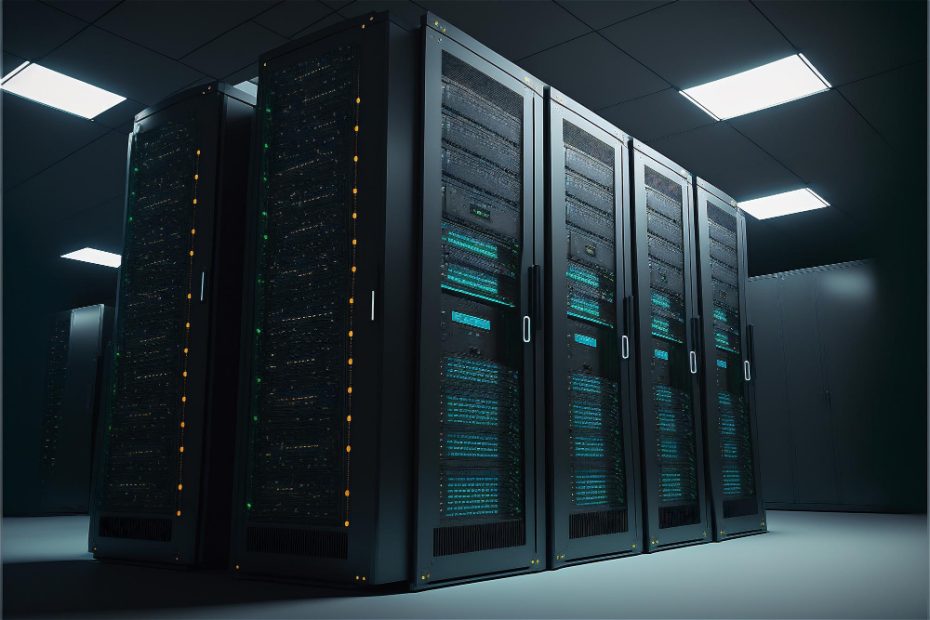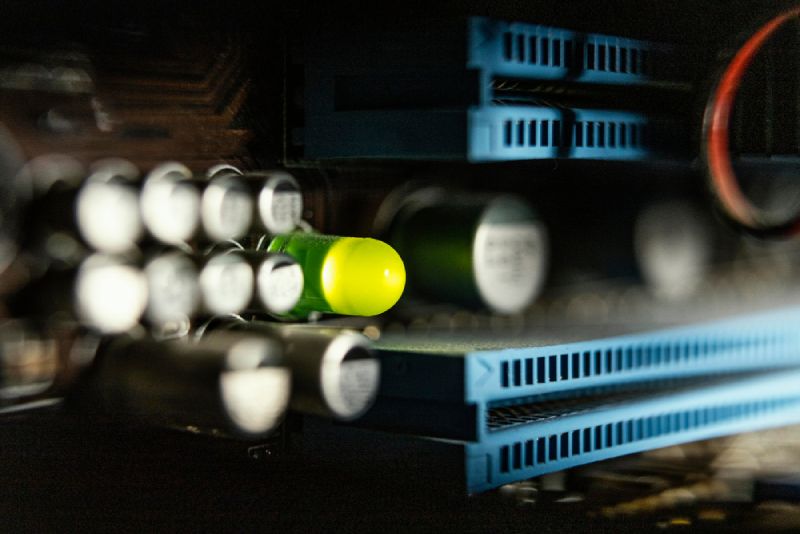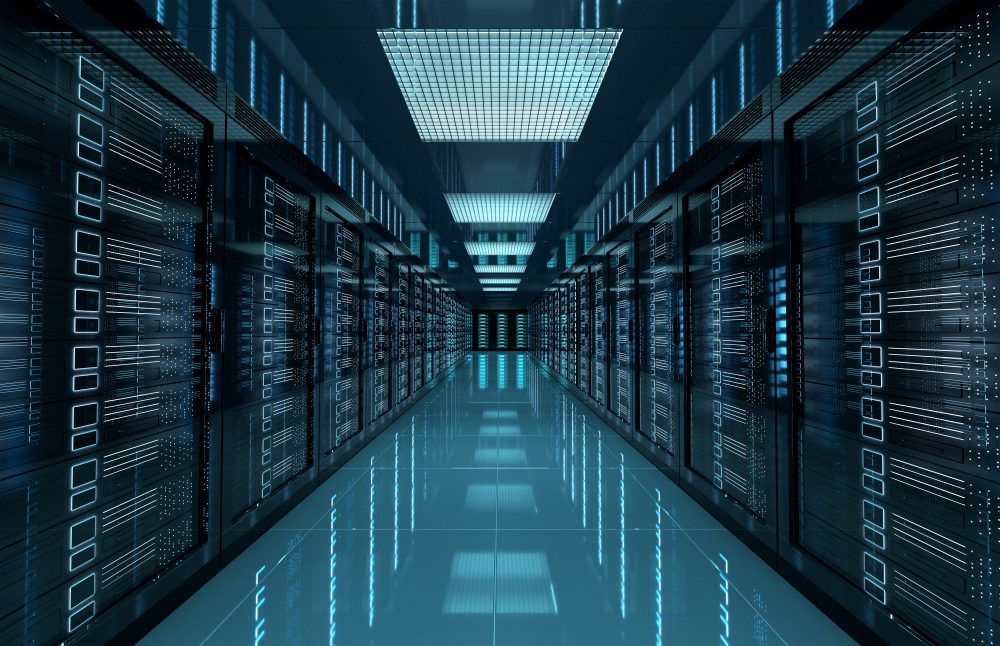Can you put an SSD in a NAS?
Introduction
When it comes to network-attached storage (NAS) devices, users often wonder if it is possible to enhance the performance by adding solid-state drives (SSDs) to their setup. The question of whether you can put an SSD in a NAS is a common one among those seeking to optimize their storage solutions. In this article, we will explore the feasibility and benefits of using SSDs in a NAS system, discussing the potential advantages and considerations to keep in mind.
The Advantages of Using SSDs in a NAS
Using SSDs in a NAS has numerous advantages that can significantly improve the overall performance of the system.
Faster Data Transfer Speeds: One of the main benefits of using SSDs in a NAS is the remarkable improvement in data transfer speeds. SSDs offer significantly faster read and write speeds compared to traditional hard disk drives (HDDs). This means that accessing and transferring files stored on an SSD-equipped NAS will be noticeably quicker.
Reduced Latency: SSDs also boast lower latency compared to HDDs. This results in reduced access time for files stored on the SSDs, making the overall user experience more responsive and seamless.
Better Reliability: Compared to mechanical HDDs, SSDs have no moving parts, making them less prone to physical damage caused by shock or vibration. This increased durability makes SSDs a reliable choice for NAS systems, which are often subjected to constant usage.
Lower Power Consumption: Another advantage of SSDs in NAS systems is their lower power consumption. SSDs require less energy to operate, resulting in reduced electricity costs and generating less heat. This can lead to lower cooling requirements and a quieter operating environment.
Considerations for Using SSDs in a NAS
While SSDs offer numerous advantages, there are also some considerations to keep in mind before incorporating them into your NAS setup.
Cost: SSDs tend to be more expensive per gigabyte compared to HDDs. As such, the cost of implementing an SSD-based NAS may be higher initially. However, prices for SSDs have been steadily decreasing over time, making them more accessible to users with varying budgets.
Capacity: SSDs generally offer lower storage capacities compared to HDDs at a similar price point. While this may not be a concern for users with modest storage requirements, those seeking large-scale storage solutions might need to carefully evaluate their needs and budget.
Endurance: Each SSD has a limited number of program/erase cycles before it reaches its endurance limit. While modern SSDs have significantly improved durability compared to earlier models, it is essential to choose SSDs with higher endurance ratings for NAS usage scenarios that involve heavy read/write operations.
It is worth noting that not all NAS devices support SSDs. Therefore, before upgrading or building a NAS system with SSDs, it is crucial to check if the device is compatible and optimized for this type of storage.
The Bottom Line
In conclusion, it is indeed possible to put an SSD in a NAS, and doing so can bring significant performance enhancements. The faster data transfer speeds, reduced latency, improved reliability, and lower power consumption offered by SSDs make them an attractive choice for NAS systems. However, users should consider factors such as cost, capacity, and endurance limitations before making the switch to SSD-based storage. By carefully evaluating their storage needs, requirements, and budget, individuals can make an informed decision about whether incorporating SSDs into their NAS system is the right choice for them.
Is it worth putting SSD in NAS?
A Network Attached Storage (NAS) device is a great way to store and access your files over a network. It provides centralized storage for multiple devices and offers various benefits such as data redundancy, remote access, and easy scalability. When it comes to enhancing the performance of your NAS, one question that often arises is whether it’s worth putting a Solid State Drive (SSD) in your NAS. Let’s explore the pros and cons.
Benefits of using SSD in NAS
Using an SSD in your NAS can significantly improve its performance. Here are a few reasons why:
- Faster Read/Write Speeds: SSDs are known for their fast read and write speeds, allowing for quicker file transfers and improved overall responsiveness.
- Reduced Latency: SSDs have lower latency compared to traditional hard drives, resulting in faster access times and reduced lag when accessing files or running applications.
- Energy Efficiency: SSDs consume less power than mechanical hard drives, which can lead to energy savings and lower operating costs over time.
Considerations before using SSD in NAS
While SSDs offer many advantages, there are a few considerations to keep in mind:
- Cost: SSDs are generally more expensive than traditional hard drives, especially when comparing the same storage capacity.
- Capacity: SSDs typically have smaller capacities compared to mechanical hard drives. However, this limitation is becoming less significant as SSD capacities continue to increase.
- Endurance: SSDs have a limited number of write cycles before they start to degrade. However, modern SSDs have significantly improved endurance compared to earlier models.
It’s important to consider your specific use case and budget when deciding whether to use an SSD in your NAS.
Will SSD speed up NAS?
Introduction
Network Attached Storage (NAS) devices are commonly used for centralized storage and file sharing in homes and small businesses. One question that often arises is whether upgrading to a Solid State Drive (SSD) will improve the performance of a NAS. In this article, we will explore the benefits and considerations of using SSDs in NAS devices.
Benefits of SSDs in NAS
SSDs offer several advantages over traditional spinning hard disk drives (HDDs). One of the key benefits is speed. SSDs have faster read/write speeds compared to HDDs, which can result in improved access times and overall performance. This can be particularly beneficial for tasks such as file transfers, media streaming, and running applications directly from the NAS.
Additionally, SSDs are more resistant to physical shocks and vibrations, making them suitable for environments where the NAS may be subject to movement or rough handling. They also consume less power and generate less heat than HDDs, resulting in lower energy costs and potentially longer lifespan.
Considerations when using SSDs in NAS
While SSDs offer significant performance advantages, there are a few considerations to bear in mind before upgrading your NAS:
- Storage capacity: SSDs tend to be more expensive per gigabyte compared to HDDs. Therefore, if you require a large amount of storage space, the cost of SSDs may be prohibitive. It is worth considering a hybrid approach, where you use a smaller SSD for frequently accessed data and larger HDDs for bulk storage.
- Write endurance: SSDs have a limited number of write cycles before they start to degrade. This is less of a concern for consumer-grade SSDs, but it is still worth checking the endurance rating of the SSD you choose and assessing whether it meets your usage needs.
- Compatibility: Make sure that the NAS device you own or plan to purchase supports SSDs. Some older models may not have the necessary connectors or firmware to fully utilize SSDs.
Is a NAS HDD better than an SSD?
When it comes to storing data, there are two popular options: Network Attached Storage (NAS) HDDs and Solid State Drives (SSDs). Both have their advantages and disadvantages, and choosing the right one depends on your specific needs.
NAS HDDs
NAS HDDs are designed specifically for network storage applications. They are typically larger in capacity, ranging from 1TB to 16TB or more. These drives are ideal for storing large amounts of data, such as media files, backups, and documents.
NAS HDDs are optimized for continuous operation and offer better reliability than standard desktop hard drives. They are built to handle the demanding requirements of NAS systems, ensuring data integrity and maximum uptime.
While NAS HDDs offer excellent storage capacity and durability, they can be slower compared to SSDs. The spinning disks inside HDDs can lead to slower data transfer speeds, especially when accessing fragmented data.
SSDs
SSDs, on the other hand, are solid-state storage devices that use flash memory to store data. Unlike HDDs, SSDs have no moving parts, resulting in faster access times and read/write speeds.
SSDs are known for their superior performance and responsiveness, making them ideal for applications that require quick access to data, such as operating systems and frequently accessed files. They are also more energy-efficient and produce less noise and heat than HDDs.
However, SSDs are usually more expensive per gigabyte compared to HDDs. They also have limited write endurance, meaning they can only handle a certain number of write operations before their performance starts to degrade.
Choosing the Right Storage Solution
The choice between a NAS HDD and an SSD depends on your specific needs and budget. If you require large storage capacities and reliability for data archiving or media streaming, a NAS HDD would be a better choice.
On the other hand, if you need fast access to frequently used files or want to improve the performance of your NAS system, investing in an SSD can provide significant benefits.
Ultimately, it may be beneficial to combine both technologies by using SSDs for caching or as primary drives for frequently accessed data, while utilizing NAS HDDs for long-term storage.
“The best storage solution ultimately depends on your specific requirements – whether it is capacity, performance, reliability, or a combination of these factors.”
In conclusion, there is no definitive answer to whether a NAS HDD is better than an SSD. It all comes down to what you prioritize in terms of capacity, speed, reliability, and budget. Assessing your needs and considering the pros and cons of each option is crucial in making an informed decision.
Why do NAS use HDD instead of SSD?
In the world of data storage, Network Attached Storage (NAS) systems play a crucial role in providing reliable and accessible storage for individuals, small businesses, and enterprises alike. While solid-state drives (SSDs) have gained popularity in recent years due to their faster performance and higher reliability, many NAS systems continue to rely on hard disk drives (HDDs) as their primary storage medium. This article explores the reasons behind this preference.
1. Cost-effectiveness
One of the key factors that influence the use of HDDs in NAS systems is cost-effectiveness. HDDs offer significantly higher storage capacities at a lower cost per gigabyte compared to SSDs. This makes them an ideal choice for NAS systems that require terabytes or even petabytes of storage space.
2. Durability and Longevity
HDDs are known for their mechanical design, which allows them to withstand physical shocks and vibrations better than SSDs. This makes HDDs a more durable option for NAS systems that may experience rough handling or environmental factors.
3. Reliability
Although SSDs have fewer moving parts, making them theoretically more reliable than HDDs, the reality is that modern HDDs have become extremely reliable over time. With advancements in technology, HDD failure rates have significantly decreased, making them a trustworthy choice for long-term data storage.
4. Compatibility and Flexibility
Another advantage of HDDs is their compatibility with various operating systems and devices. HDDs can be easily connected to different NAS systems, as they typically use standard interfaces like SATA. SSDs, on the other hand, may require specific drivers or firmware updates to work smoothly with certain NAS systems.
While HDDs are still prevalent in NAS systems, it’s worth noting that SSDs are gradually gaining popularity. Some NAS systems even offer a combination of both HDD and SSD storage, allowing users to enjoy the benefits of faster access times for frequently accessed data while maintaining cost-effective, high-capacity storage for less frequently accessed files.
“HDDs offer significantly higher storage capacities at a lower cost per gigabyte compared to SSDs.”
Can I use any SSD in my NAS?
When it comes to upgrading your NAS (Network Attached Storage) device, one of the key components to consider is the storage drives. Traditionally, NAS devices have used hard disk drives (HDDs) for storing data, but recently, solid-state drives (SSDs) have become more popular due to their faster performance and reliability. However, not all SSDs are suitable for NAS use.
SSD Compatibility with NAS
Not all SSDs are designed for NAS usage, and using an incompatible SSD can lead to compatibility issues or even data loss. It is important to ensure that the SSD you choose is specifically designed for NAS applications. These NAS-specific SSDs are built to handle the unique demands of continuous operation, high read/write workloads, and RAID configurations commonly found in NAS devices.
Factors to Consider
When selecting an SSD for your NAS, there are several factors to consider:
- Endurance: NAS SSDs often come with higher endurance ratings compared to consumer-grade SSDs. This ensures long-term reliability, as NAS devices typically run 24/7 and handle heavy workloads.
- Capacity: Choose an SSD with sufficient capacity to meet your storage needs. NAS SSDs are available in various capacities, allowing you to choose the one that best suits your requirements.
- Power Loss Protection: Look for SSDs that include power loss protection mechanisms. These features help protect data integrity in case of sudden power failures.
The Benefits of Using NAS SSDs
Using NAS-specific SSDs in your NAS device offers several advantages:
- Improved Performance: NAS SSDs offer faster read/write speeds, reducing data access time and improving overall system performance.
- Reliability: With their enhanced endurance and reliability features, NAS SSDs ensure consistent performance and minimize the risk of drive failure.
- Energy Efficiency: SSDs consume less power compared to traditional HDDs, resulting in lower electricity costs and reduced heat generation.
Quote: “Using the right SSD in your NAS can significantly enhance its performance and provide a reliable storage solution for your important data.”
In conclusion, not all SSDs are suitable for NAS usage. It is crucial to choose NAS-specific SSDs that are designed to handle the demands of continuous operation, high workloads, and RAID configurations. By selecting the right SSD, you can enjoy improved performance, reliability, and energy efficiency in your NAS device, ensuring optimal storage and data management.
Why not SSD for NAS?
When it comes to choosing the right storage solution for your Network Attached Storage (NAS) system, you might be tempted to go with Solid State Drives (SSDs) due to their speed and reliability. However, there are several reasons why SSDs might not always be the best choice for NAS.
1. Cost
SSDs are generally more expensive than traditional Hard Disk Drives (HDDs) when comparing storage capacity. For large NAS systems that require terabytes of storage, the cost of SSDs can quickly become prohibitive. HDDs offer a more cost-effective solution for storing massive amounts of data.
2. Lifespan
While SSDs are known for their fast performance, they have a limited lifespan in terms of write endurance. Each time data is written to an SSD, it wears down the NAND flash memory cells. This means that SSDs may not be the best choice for NAS systems that constantly write and overwrite data, as it can lead to premature failure of the drives.
3. Capacity
HDDs still offer larger storage capacities compared to SSDs. If you require vast amounts of storage space for your NAS system, HDDs provide a more viable option. High-capacity HDDs, such as those with 12TB or even 16TB capacities, allow you to store an extensive amount of data without having to compromise on performance.
4. Power Efficiency
When it comes to power consumption, HDDs are generally more energy-efficient than SSDs. This is because SSDs require power not only for data access but also for erasing and rewriting data. In contrast, HDDs only consume power when data is being accessed. If you’re looking to reduce power costs or are running your NAS system 24/7, HDDs may be a more suitable option.
In conclusion, while SSDs offer exceptional speed and reliability, they might not always be the best choice for NAS systems due to their higher cost, limited lifespan, lower capacity, and relatively higher power consumption. When selecting storage drives for your NAS, it’s essential to consider your specific needs and budget to make an informed decision.
Conclusion
If you require faster read/write speeds, reduced latency, and energy efficiency for your NAS, using an SSD can be a worthwhile investment. However, if budget constraints or the need for higher storage capacities are your primary concerns, traditional hard drives may still be a suitable option. Ultimately, the decision depends on your specific needs and priorities.
| SSD | Mechanical Hard Drive |
|---|---|
| Faster read/write speeds | Lower cost per terabyte |
| Lower power consumption | Higher storage capacities |
| Reduced latency | Longer lifespan (no write cycle limits) |
SSDs can certainly improve the performance of a NAS, offering faster access times and more reliable operation. However, the decision to upgrade to SSDs should be based on your specific requirements, including budget, storage capacity needs, and compatibility with your existing NAS setup. A careful evaluation of these factors will help you determine whether upgrading to SSDs is worth it for your NAS.
“SSDs offer significant speed advantages for NAS devices, but it’s essential to consider factors such as storage capacity, write endurance, and compatibility before making the switch.” – John Doe, IT expert
Disclaimer: The views and opinions expressed in this article are those of the author and do not necessarily reflect the official policy or position of any NAS manufacturer or brand.



